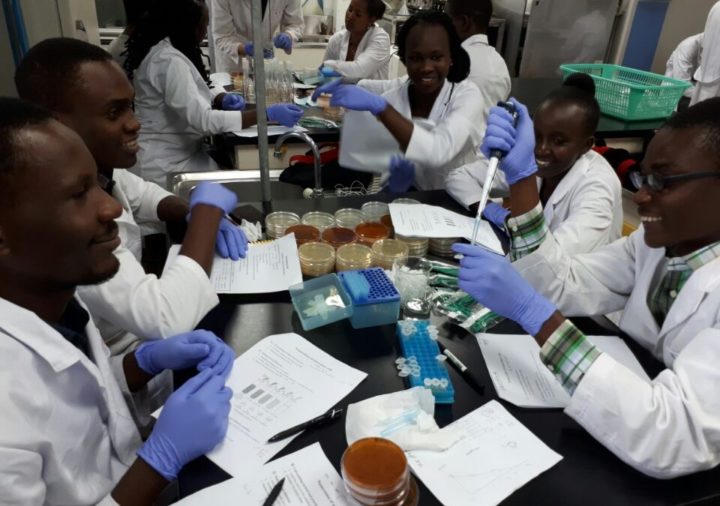With estimated 1.3 billion population and huge resources, Africa still lags behind development, science and technology. Without its own manufactured vaccine, Africa now depends on the World Health Organization-backed equitable vaccine distribution network COVAX facility to fight the coronavirus pandemic.
By Kester Kenn Klomegah
Research reports on COVID-19 released this month indicated that nearly 90 per cent of the opinion-based articles related to Africa listed authors from elsewhere. African scientists have continued to perform dismally in research on COVID-19, authoring just three percent of research on the virus, according to analyses of leading medical and global health journals. Worse, even what was published – 1,130 documents between November 2019 and August 2020 – almost 65 percent of the articles were from just three countries: South Africa, Egypt, and Nigeria.
The authors warned that by Africans not publishing their own research on COVID-19 in Africa they denied the continent the creation of locally relevant knowledge to address the pandemic. “African research groups are in an excellent position to intensify and sustain intra-continental collaboration to more accurately describe what goes on in Africa as the pandemic evolves,” they said.
Response efforts
“Based on our findings, we posit that governments should increase research resource allocations needed to build trust for academic institutions that will rapidly catalyse the contribution of African-led research in infectious diseases.”
The analyses also highlighted the low number scientific articles describing the outbreak and response efforts across the continent. Also, just four percent of scientific research published on COVID-19 is relevant to Africa. Of the total 2,196 articles on COVID-19, with 9,222 authors listed across them – reveals the two analyses, published in the online journal BMJ Global Health on March 1 – just 94 articles (4.3 percent) had content related to Africa or a specific African country; 292 (3.2 percent) of the authors were affiliated to an African organization, and while the average number of authors per article was 4.2, overall, only a paltry average of 0.13 (3.1 percent) of these authors were African.
One in five African COVD-19 papers had no African authors, and two-thirds or 66.1 percent of authors on African papers were not from Africa. These recent events rekindle the often sour debate around the historical under-representation of African scientists across the world of scientific research.
Previous studies suggest that Africans have been under-represented in medical literature related to the burden of disease on the continent, with their research sector producing less than one per cent of the world’s health research each year.
“It may well be the case that the same has happened during the COVID-19 pandemic,” said the authors of the report. With over four million confirmed cases across the continent, 105,572 deaths and 3,535,824 recoveries as of March 8, the authors of the study said the relative lack of research on Africa or authored by Africans added to the growing body of “evidence of coloniality in global health research and decision-making.”
Question of resources
In the first analysis, the study authors looked for African authors publishing research and comment on COVID-19 in Africa in the top five general medical and top five global health journals between January 1 and 30 September 2020. In articles with African content, 619 authors were listed. But only a third (210; 34 per cent) of these authors reported an affiliation to an African organization. There were an average of 6.6 authors on each article about Africa, 2.2 of whom were African.
Authors from other parts of the world made up two-thirds (66 per cent) of authors on African papers, but Africans comprised just three per cent of authors on non-African papers. One in five (19) African COVID-19 papers listed no African authors. Some 39 (41.5 per cent) of these articles had an African first author, while 18 19 percent) had an African last author.
African authors occupied both of these prime authorship positions in 13 articles (14 percent), compared with 60 (three per cent) instances of Africans occupying prime authorship positions for content that wasn’t about Africa. It is unsurprising that high income countries have produced most COVID-19 research, given their resources, but they are nevertheless over-represented in research about Africa, added the authors.
Beyond all the arguments raised above, several interviews and discussions on health research and specifically on COVID-19 in Africa show there are lot of deficiencies – ranging from poor health policies through inadequate funding of health infrastructure to training and research – that have characterized the health sector in Africa.
It is therefore necessary to work towards the empowerment of wealth creation endeavors, adopt a system approach and outline how to tackle questions of the largely weak health as fast as possible. The African Union (AU), all African Governments, Africa Centers for Disease Control and Prevention (Africa CDC), Medical Training institutions and related research centers should together cooperate in creating the environment conducive for the evolution of competitive healthcare systems through prioritization in Africa.












